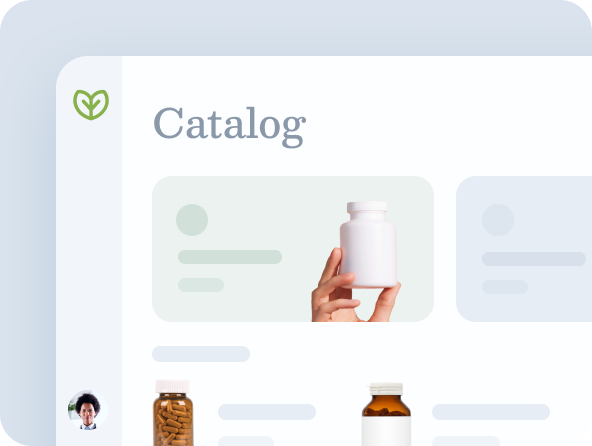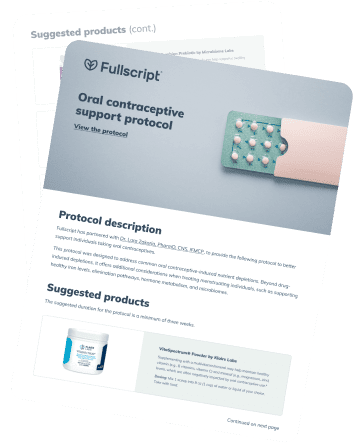Knowing what to do and what not to do during pregnancy can be challenging. You are not only thinking about your health during pregnancy but also the little human growing inside you, so taking care of your body and health feels even more important.
Studies have shown that roughly 28.9% of pregnant individuals worldwide use medicinal herbs to support their health during pregnancy. (7) Though there are many benefits to certain herbs for pregnancy and childbirth, research shows that there are several herbs to avoid during those nine months. Below are some herbal supplements that have been shown to be safe during pregnancy and others that may negatively impact both you and your baby.

Use of herbs for pregnancy
Medicinal herbs have been used for many years to support and maintain health, and this is no different when it comes to supporting a healthy pregnancy and childbirth. The use of herbs has even increased in recent years due to more research and awareness on the topic. (10)
For many years, people have used herbs during pregnancy to reduce morning sickness, shorten labor, ease the symptoms of the common cold, and improve urinary tract infections. However, the use of certain herbs have also been linked to heartburn, early labor, miscarriages, and other poor reactions. (10) Though there are many herbs that are beneficial during pregnancy, it’s important to work with your healthcare provider to ensure you’re taking herbs safely. In addition to the types of herbs, it’s also important to consider the time you take them. Some herbs are better to consume during early pregnancy, while some are better later on into the third trimester.
Beneficial herbs during the first trimester
Herbs that are beneficial during the first trimester are typically used to address morning sickness. The following herbs are some that have been shown to be safe and have a positive effect on reducing nausea and vomiting, heartburn, and vaginal irritation during those first few months of pregnancy. Continue reading to learn about common herbal remedies during the f
1. Peppermint
Peppermint has been shown to be an effective and safe herb to take throughout your pregnancy. Peppermint has been used in pregnancy to reduce fevers, aid in digestion, and improve nausea and vomiting. Though shown to support individuals while pregnant, it can also lead to heartburn or worsen existing heartburn. (1)(12)
2. Ginger
Known for its use to reduce nausea and vomiting, ginger is a commonly consumed herb during the first trimester. (3) In a study completed with women in the first five months of their pregnancies, the use of ginger was shown to reduce the severity of nausea and vomiting. Research suggests that ginger is safe during this time and does not seem to have any risk to mom or baby. (1)(14)

3. Senna seed
Known for its laxative effect, senna seed has been shown to be a safe and effective herb to use during the first trimester as well as throughout pregnancy to relieve constipation, a common concern during this time. Research shows that taking this herb doesn’t harm the fetus. (9) It should be noted that laxatives, natural or not, can lead to habituation; therefore, relying only on senna seed may not be the best solution for constipation long-term.
4. Slippery elm bark
Safe and effective during the entire duration of pregnancy, slippery elm bark has been shown to help reduce vaginal irritation, heartburn, and vomiting. (10) The inner bark can be used in cooking. However, caution should be taken with slippery elm bark as it can decrease the absorption of medication and supplements. (1)
5. Oats and oat straw
Known for their high levels of calcium and magnesium, oats and oat straw have been shown to be safe herbs for pregnancy. This calcium and magnesium-rich herb may help relieve anxiety and reduce restlessness. Used topically, it can help soothe irritated skin. (1) Consuming oat straw during pregnancy has also been shown to help calm and relax a pregnant individual and even help heal yeast infections. (10)
Beneficial herbs during the second trimester
After the first trimester of pregnancy, the types of herbs that can be used or provide benefit to both you and your baby change. Throughout the second semester, pregnant individuals can start introducing herbs such as thyme and flax to help with bloating, reduce the symptoms of colds and urinary tract infections, and relieve constipation. (4)(9)
1. Thyme
Though not safe to consume in large amounts early during your pregnancy due to the potential risk of miscarriage, thyme has been shown to be safe if consumed later in pregnancy. (7) Helping manage bloating and address stomach aches, thyme has many health benefits for pregnant individuals. Thyme has also been shown to help reduce the symptoms of the common cold and urinary tract infections. (4) However, due to limited safety evidence, it’s best to consume this herb in small amounts within your diet and not as a supplement during pregnancy.
2. Flaxseed and flaxseed oil
As long as this herb is taken past the first trimester of pregnancy, it has been shown to be safe and effective to use as a laxative to reduce constipation in pregnant individuals. (6) This study mentions that while ingesting flaxseed oil later in pregnancy (in the second and third trimesters) isn’t harmful to the baby, more research is needed to ensure that it’s safe to consume during pregnancy. This herb can be eaten in its natural seed form or as an oil.
Beneficial herbs during the third trimester
Herbs that have been shown to be beneficial during the third trimester of pregnancy are usually linked to their ability to help a pregnant person prepare for labor and support the body during and after delivery. Some of the common herbs for pregnancy and childbirth used during this stage of pregnancy are red raspberry leaf and clary sage.
1. Red raspberry leaf
A common herb used during the third trimester of pregnancy is raspberry leaf due to the belief that it can reduce the length of labor. (12) Red raspberry leaf may speed up labor and reduce bleeding due to its mineral-rich properties. A study published in 2010 found that consuming red raspberry leaf tablets starting at 32 weeks until birth shortened the second stage of labor by 9.59 minutes and reduced the need for forceps during labor by 11%. (11)
Along with its ability to shorten the second stage of labor, some individuals use red raspberry leaf to aid in morning sickness, prevent miscarriages, and promote and enrich breast milk post-delivery. (7)(10) Though raspberry leaf is commonly used for these reasons, there is currently no scientific evidence that raspberry leaf supports pregnant individuals in these ways.

2. Clary sage
Another common herb used during the third trimester to support labor is clary sage. As this herb may induce labor due to its ability to stimulate the release of oxytocin, it’s only recommended to be used after 37 weeks of pregnancy. Clary sage has also been shown to be effective during labor by promoting relaxation during contractions and helping to open the cervix. (10)
Herbs to avoid during pregnancy
Along with the herbs that have been shown to support a healthy pregnancy, there are many herbs to avoid during pregnancy as they can have adverse effects for yourself and your child.
1. Green and black tea (Camellia sinensis)
Research has shown that pregnant individuals who consume high doses of green tea and black tea (Camellia sinensis) throughout their pregnancy are at a higher risk of miscarriage, potentially due to the high levels of caffeine. Studies have also shown that consuming large amounts of caffeine from tea (or coffee) during pregnancy increases blood pressure, the risk of low-birthweight infants, stillbirth, or spontaneous miscarriage. (5)(10)
2. Chamomile
Chamomile has been used for its ability to support sleep and reduce the pain of joint inflammation. However, due to its link to lower birth weight and preterm delivery if taken during pregnancy, especially in the third trimester, chamomile is considered one of the herbs to avoid during pregnancy. (12)
3. Licorice
Commonly known as a type of candy, licorice is actually a herb. Studies have shown that the consumption of this herb during pregnancy may have harmful effects on the developing fetus and even later in life. In a study conducted in Finland, the consumption of licorice during pregnancy was linked to lower cognitive skills (e.g., memory issues) and a higher risk of learning disabilities later in life for the child (e.g., attention deficit and hyperactivity disorder). (8)
4. Fennel
Fennel is another herb that should be avoided during pregnancy as it has been shown to impact pregnant individuals and infants. The use of fennel during pregnancy has been linked to a shorter time in the womb for the baby, potentially leading to preterm labor. (13)
5. Cannabis
Cannabis is an herb that should be avoided during the entire duration of pregnancy. Studies have shown that cannabis may negatively impact brain development and reduce birth weight of the infant. (2)(9)
The bottom line
Whether it’s to relieve nausea and vomiting or support the body during labor, there are many beneficial herbs for pregnancy and childbirth. Though research on herbs and their effects on pregnancy is still evolving, it has been found that ginger, peppermint, thyme, sage, and red raspberry leaf are generally considered safe, as long as they are taken at the correct time and under the supervision of a healthcare provider.
There are also many herbs that are known to have negative effects on pregnant individuals and children, and they should be avoided or limited during pregnancy. It’s always best to check with your healthcare provider before taking any herbs during pregnancy to ensure that they are right for you.
Ready to start delivering better patient care?

- American Pregnancy Association. (n.d.). Herbs and pregnancy. https://americanpregnancy.org/healthy-pregnancy/is-it-safe/herbs-and-pregnancy/
- Gabrhelík, R., Mahic, M., Lund, I. O., Bramness, J., Selmer, R., Skovlund, E., Handal, M., & Skurtveit, S. (2020). Cannabis use during pregnancy and risk of adverse birth outcomes: A longitudinal cohort study. European Addiction Research, 27(2), 131–141. https://doi.org/10.1159/000510821
- Heitmann, K., Nordeng, H., & Holst, L. (2012). Safety of ginger use in pregnancy: Results from a large population-based cohort study. European Journal of Clinical Pharmacology, 69(2), 269–277. https://doi.org/10.1007/s00228-012-1331-5
- John, L. J., & Shantakumari, N. (2015). Herbal medicines use during pregnancy: A review from the Middle East. Oman Medical Journal, 30(4), 229–236. https://doi.org/10.5001/omj.2015.48
- Klebanoff, M. A., Levine, R. J., DerSimonian, R., Clemens, J. D., & Wilkins, D. G. (1999). Maternal serum paraxanthine, a caffeine metabolite, and the risk of spontaneous abortion. New England Journal of Medicine, 341(22), 1639–1644. https://doi.org/10.1056/nejm199911253412202
- Knudsen, V., Hansen, H., Østerdal, M., Mikkelsen, T., Mu, H., & Olsen, S. (2006). General obstetrics: Fish oil in various doses or flax oil in pregnancy and timing of spontaneous delivery: a randomised controlled trial. BJOG, 113(5), 536–543. https://doi.org/10.1111/j.1471-0528.2006.00895.x
- Laelago, T. (2019). Herbal medicine use during pregnancy: Benefits and untoward effects. Herbal Medicine. https://doi.org/10.5772/intechopen.76896
- Räikkönen, K., Martikainen, S., Pesonen, A. K., Lahti, J., Heinonen, K., Pyhälä… & Kajantie, E. (2017). Maternal licorice consumption during pregnancy and pubertal, cognitive, and psychiatric outcomes in children. American Journal of Epidemiology, 185(5), 317–328. https://doi.org/10.1093/aje/kww172
- Samavati, R., Ducza, E., Hajagos-Tóth, J., & Gaspar, R. (2017, September). Herbal laxatives and antiemetics in pregnancy. Reproductive Toxicology, 72, 153–158. https://doi.org/10.1016/j.reprotox.2017.06.041
- Shinde, P., Patil, P., & Bairagi, V. (2012). Herbs in pregnancy and lactation: A review appraisal. IJPSR, 3(9), 3001-3006. https://ijpsr.com/bft-article/herbs-in-pregnancy-and-lactation-a-review-appraisal/
- Simpson, M., Parsons, M., Greenwood, J., & Wade, K. (2001). Raspberry leaf in pregnancy: Its safety and efficacy in labor. Journal of Midwifery &Amp; Women’s Health, 46(2), 51–59. https://doi.org/10.1016/s1526-9523(01)00095-2
- Terzioglu Bebitoglu, B. (2020). Frequently used herbal teas during pregnancy – Short update. Medeniyet Medical Journal, 35(1), 55–61. https://doi.org/10.5222/MMJ.2020.69851
- Trabace, L., Tucci, P., Ciuffreda, L., Matteo, M., Fortunato, F., Campolongo, P., Trezza, V., & Cuomo, V. (2015). “Natural” relief of pregnancy-related symptoms and neonatal outcomes: Above all do no harm. Journal of Ethnopharmacology, 174, 396–402. https://doi.org/10.1016/j.jep.2015.08.046
- Vutyavanich, T. (2001). Ginger for nausea and vomiting in pregnancy: Randomized, double-masked, placebo-controlled trial. Obstetrics & Gynecology, 97(4), 577–582. https://doi.org/10.1016/s0029-7844(00)01228-x






